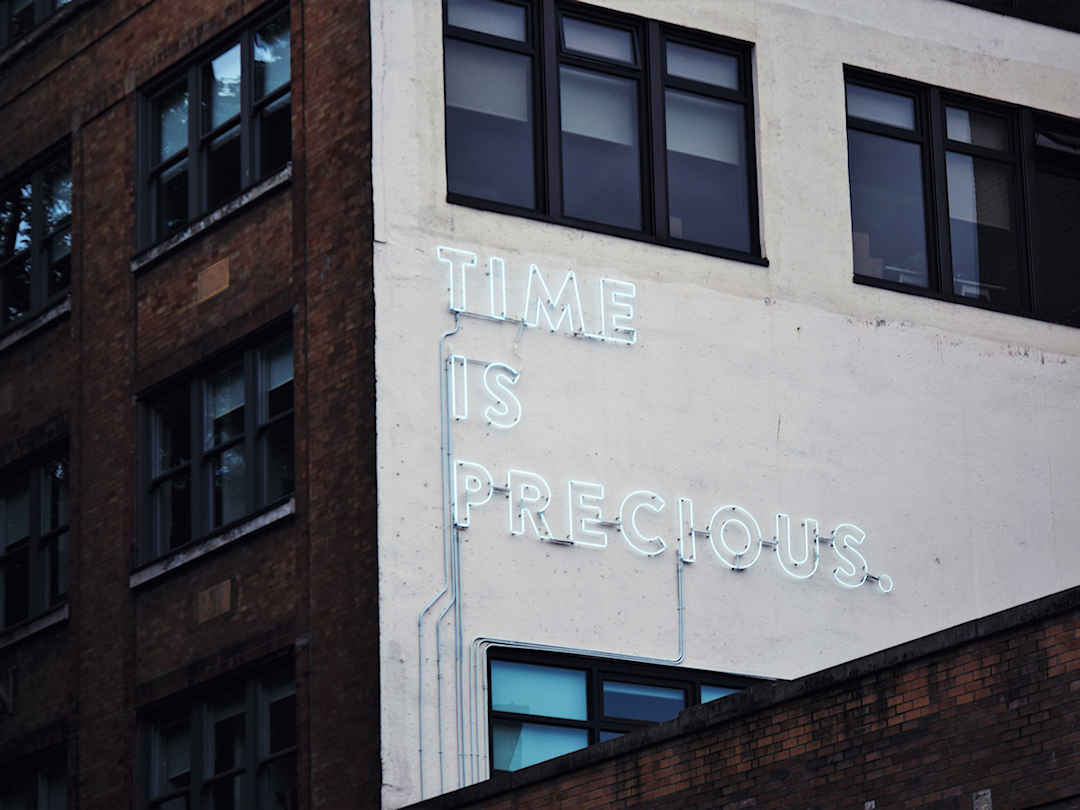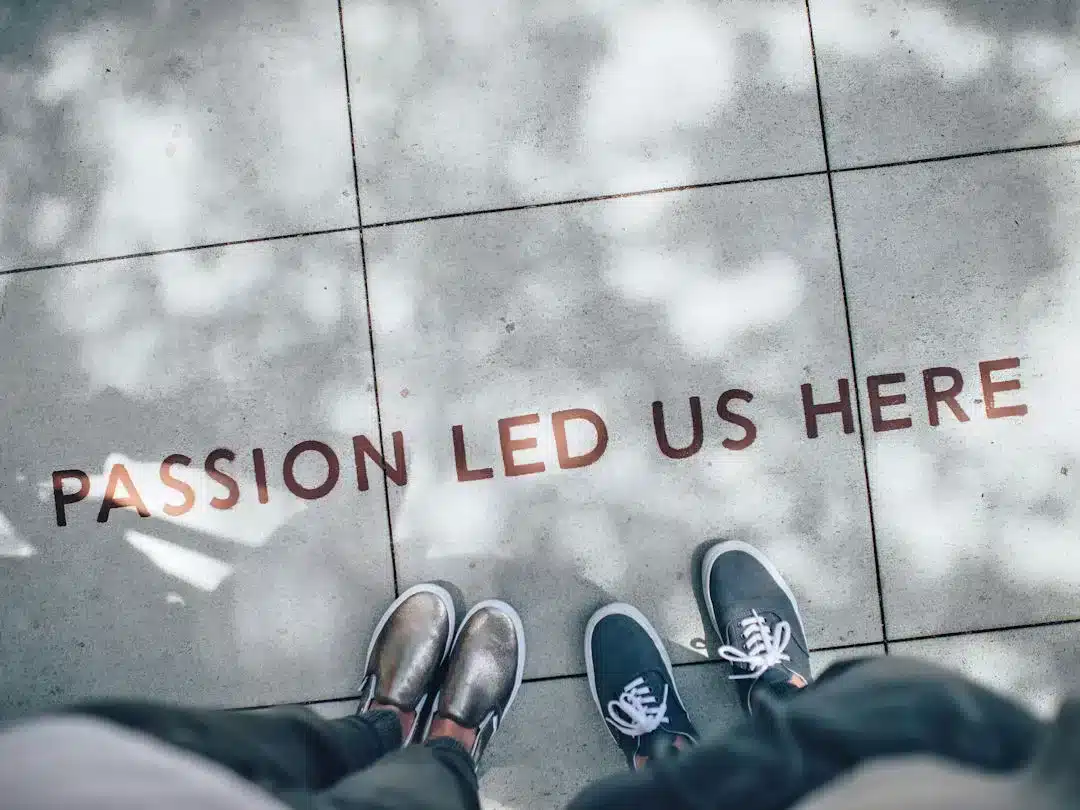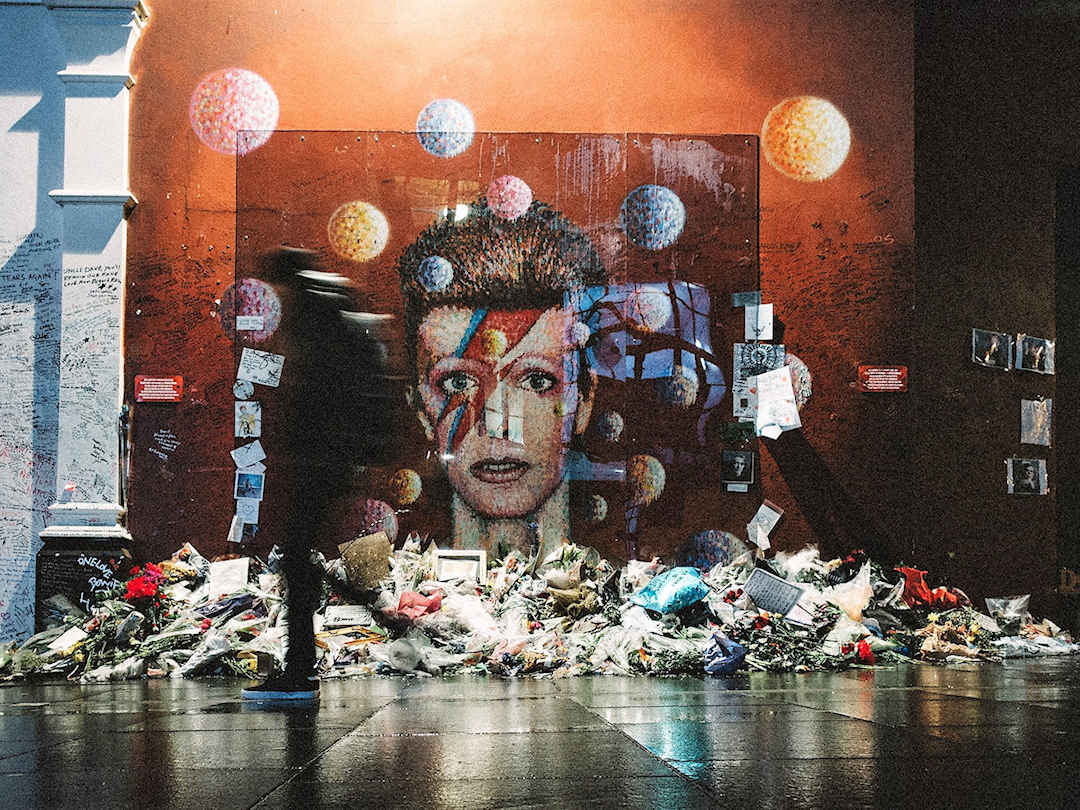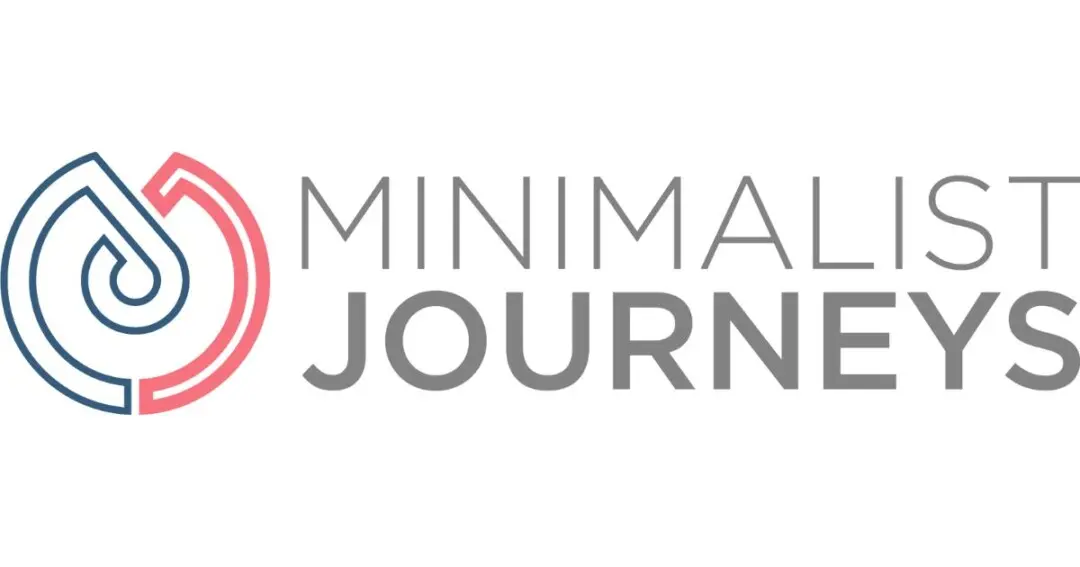This article may contain links to products and services we use and recommend. We may receive compensation when you click on links to those products. For more information, see our Disclosure Policy.
In another article, Paul and I shared how adopting minimalism has changed our lives. While it is an ongoing process, thanks to minimalism, we live with more awareness and intent—true to our values. We firmly believe that everyone can benefit from applying minimalist concepts in their lives in whichever way works best for them.
If you are here because you are wondering how and where to kick off your journey to and with minimalism, let’s start by sharing one crucial pinch of wisdom with you: Minimalism is not dogmatic – there is no ONE way to go about it. Yep, there is no blueprint and no instruction booklet that works for everyone. Sorry to burst your bubble, but we want you to succeed. So, if one approach doesn’t work for you, try a different one. Here is what worked for us. And who knows, it may just be the way that transforms your life, too.
Are you looking for real people's experiences with minimalism?
On our website, we share the stories of our readers (and our own):
- Tired of the daily grind? How adopting minimalism has changed our lives
- Thought you can't embrace minimalism because you've got kids? Think again
- How a global pandemic reshaped this lifelong minimalist's views of his city, home and life
If you, too, would like to be featured to encourage others to embark on their minimalist journey, please get in touch.
First up: What is Minimalism?
Before discussing the different steps, let’s clarify what minimalism is.
There are many definitions, but the one by Joshua and Ryan (aka The Minimalists) best reflects our view:
Minimalism is a tool to rid yourself of life’s excess in favour of focusing on what’s important – so you can find happiness, fulfilment and freedom. – The Minimalists
Makes sense? Let’s continue.

Time and money are our precious resources - Use them wisely
1. Declutter your physical environment
For some people, minimalism starts and ends with decluttering their homes. They want to live in a healthier, less stressful home environment, spend less time cleaning it, and spend more time with their kids, partners, or ageing parents. And that’s fine.
If this is where you would like to start, here are three approaches to how you can go about reducing your STUFF:
- One Kings Lane: 8 Lessons I Learned from the Decluttering Bible
- Be more with less: Project 333
- Becoming Minimalist: Creative ways to declutter
I don’t want to add to the seemingly endless list of tips and tricks for decluttering your home (or workplace). I’m sure you will find a way that suits you. What I will say, though, is that Paul and I personally apply the concept of a capsule wardrobe (as applied by Project 333).

You will never experience 'I have nothing to wear' with a capsule wardrobe
Decluttering your home (or workplace) – though at times painful and slow – is a very rewarding exercise. You will notice the differences immediately, as a home (or workplace) with less clutter is easier on the eye and feels calmer. Plus, keeping it clean and organised daily is so much easier.
Your physical environment is only one of several aspects in your life that can contribute to (or distract from) your overall well-being. And it may not be the one causing you the most pain.
Let’s have a look at what other aspects of your life are (also) worth giving some thought to.

Many people start their minimalist journey by decluttering their home... because the effect is immediate
Recommended Books on Adopting Minimalism
- Dean Christopher's Minimalism leads readers through a 12-week process designed to help them identify their values, evaluate their habits, change their mindsets, reduce their mental stress, and ultimately transform their lives.
- Mastering Minimalism by Jordan Williams provides a comprehensive roadmap to those seeking to adopt minimalism by taking a holistic, wheel-of-life approach that covers all aspects of our lives.
- Cal Newport's Digital Minimalism explores the impact of constant connectivity. It helps us regain control by using technology to support our values and goals (not distracting from them).
- Travel Light by Light Watkins combines the principles of minimalism with the art of travel. It offers practical tips on planning, packing, and staying mindful on the road to enhance the experience.
- Sustainable Living Minimalism and Zero Waste by B R Pohl focuses on the intersection of minimalism and sustainability, helping readers to limit their footprint by reducing waste and consuming (more) mindfully.
2. Check in with yourself… holistically
I like the concept of the Wheel of Life (you can tell I used to be a consultant – I love working with frameworks).
Ever since I learned about it in a resiliency course for women in 2008, I’ve used it to check in with myself and become more aware of the areas in my life that may need attention. By the way, it’s not just for women—Paul uses it, too. It helps us take a holistic, more balanced approach to our well-being.
Moving around the wheel’s spokes, you’ll realise that your (physical) environment is only one of many aspects of your life. Other elements essential for your overall well-being are your (physical/mental) health, money, relationships (with family, friends and romantic partner/s), work/career, personal growth, fun and recreation, spirituality and contributions to your community.

It may not seem so, but the Wheel of Life is really easy to apply: On a scale from 1 to 10 (1 being least and 10 being most satisfied),
- Where are you when it comes to the various facets of your life and
- Where would you like to be?
As you mark where you are in one colour (1) and where you want to be in another (2), connect the dots—separately for 1 and 2, two spider nets will appear. The areas of your life that need (the most) attention are where the spider nets are wide apart.
For those areas crying out for help, write down why you are dissatisfied. For example:
- Family and friends: Do you feel your relationships with loved ones suffer because you don’t see them as often as you’d like? What keeps you away from them?
- Money: Does opening your credit card statement each month make you feel anxious because you are not in control of your finances? Why are you not in control?
If the reasons for your dissatisfaction are related to the finite resources we have as human beings – time and money – chances are that you can benefit from applying minimalist concepts in your life to achieve greater satisfaction beyond the direct impact that decluttering your physical environment has.
3. Determine what’s (truly) important to you
Remember what we said at the beginning? Whether you rid yourself of the excess in your physical environment or other aspects of your life, what is important to us and how we perceive happiness, fulfilment, and freedom are different for everyone.
Whether you look back at many years of life experience or you have just turned 18, most of us want our lives to matter. We want our lives to have a purpose:
- Some people know from a very early age why they exist and their purpose. They are drawn in a specific direction and want to dedicate their lives to pursuing it. Think of Mother Teresa. If that’s you, brilliant. Document your WHY and skip the next point.
- For many others (including me), it’s not that straightforward, and our why (or how it manifests itself) may also change as we age. If you are like me (I have a rough idea of what I want to be remembered for), articulate what you can. It’s a start.

Knowing what's important to us is the compass that directs our lives
Uncover your WHY
Ways to uncover your why are manifold. I like (and have used) the following questions to gain a better understanding of my WHY:
- Which experiences (good and bad) have shaped your life?
- What similarities can you recognize in your most notable achievements?
- What (problems in the world) are you most passionate about (solving)?
- If money was not an issue, what line of work would you be most drawn to?
- Which dreams in your life do you regret the most for not pursuing harder?
- What is the lasting legacy you want to leave?
- Whom do you most admire? What characteristics of these people would you like to emulate?
Ensure you thoroughly reflect on these questions (and document your thoughts). This is not a game where the fastest player wins. This is your (future) life, so take the time it deserves.

What do you want your life to be remembered for?
Define your values
While my WHY is still a work in progress, I clearly understand my personal (or core) values. I find it easier to articulate them. Paul and I also documented our shared core values as part of our commitment statement to each other before we married. Determining your values might be easier if you are struggling with your WHY.
Values are principles or standards of behavior; one’s judgement of what is important in life. – The Oxford Dictionary
Applying the above definition, ask yourself the following questions:
- Which words or phrases describe the behaviours and attitudes I want to encourage in my life?
- What is most important in my life?
- What would I not compromise on, or if I did, I would feel highly uncomfortable?
Again, take your time to reflect (and document your thoughts).

Adopting minimalism is like climbing... It's hard work but your perseverance will reward you with new perspectives and insights
If you look back at your thoughts on why you exist and what you want your life to be remembered for, you will notice that your why and your values are linked: You can’t truly live your WHY without living (in alignment with) your values.
Ultimately, we use our values as guidelines when making decisions. When we adopt minimalism—no matter what approach we take—knowing what is (indeed) important to us is essential in deciding what is excess and what isn’t.
Could you use some inspiration and motivation?
Here are our favourite documentaries and podcasts to help you keep going on your minimalist journey:
4. Live your values
As mentioned earlier, while a great start, often it’s not (just) a cluttered home that distracts from living our values.
Using the Wheel of Life, work your way through each of the aspects of your life you are unsatisfied with – step by step – and think about the following:
- What values are you compromising and why?
- What distracts you from living your values?
- How can you remove these distractors?
Coming back to our two examples:
- Family and friends: Due to a chronic staff shortage, you must work long hours and don’t get to spend the time you need with the most important people in your life. This causes feelings of resentment towards your employer and guilt towards your loved ones. Could changing your job reduce your workload and hours and bring your life back into balance?
- Money: You’ve been treating your credit card like free money – a coffee and dinner. But when you see the interest charged, you realise it’s anything but free. Your spending habits have even led to arguments with your pregnant partner. What actions must you take to return your card balance to zero (before the baby arrives)? And how can you avoid slipping back into debt (when you’re the only earner)?
Speaking of spending, you may want to ask yourself whether something gives you value before you buy it. If you’re unsure, consider sleeping over it, parking it for a few days, and/or discussing it with a close friend (significantly if it may impact your life for years). This may also help you translate the purchase into the days, weeks, months, and years you must work to earn the $$$ (post-tax) to pay for it.
It’s astonishing how advertising and societal norms push us to buy or do stuff we don’t need or want. You can break the cycle by asking yourself whether something moves you closer to or further away from what’s truly important to you.
A final word of wisdom
Assessing your life holistically across all its facets, uncovering your why, articulating your values and applying your values, and applying them as that cause you the most dissatisfaction) is not a quick exercise. It takes time… Be patient with yourself.
What’s your minimalism story?
Every journey towards simplicity is unique. Have you found success in decluttering your home, calendar, or mind? Or are there challenges you’re still working through? Share your experiences and inspire others on their path to living with less.
Before you go, if you liked our article and found it helpful, we would appreciate it if you could share it with your friends and family via the Share buttons below. Even better: Leave a short review on Trustpilot or Google, which would help us further build our online reputation as a (trustworthy and helpful) travel and lifestyle blog.


